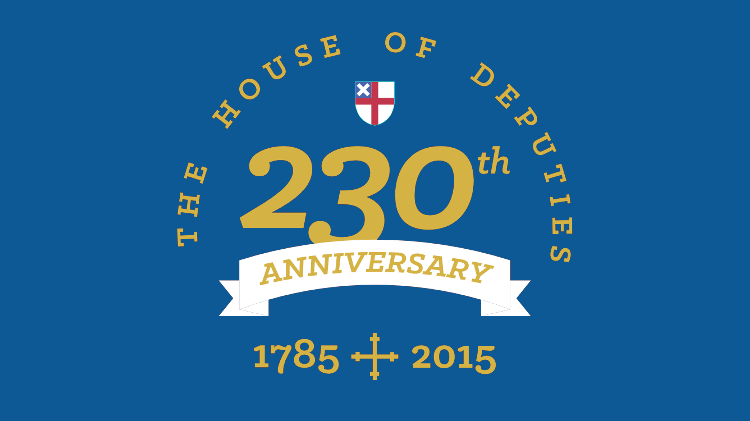Resolution D013, which would revise the process for creating the budget for the Episcopal Church, engendered significant debate in the House of Bishops about whether it was appropriate for the president of the House of Deputies to receive a stipend paid from the Episcopal Church.
The resolution, including provision for an unspecified stipend, had previously had been adopted by the House of Deputies and had been sent to the bishops for concurrence.
In morning debate on the bill, bishops questioned how the addition of a stipend would be handled. Bishop Suffragan for Federal Ministries James Magness asked whether payment would resemble that for a contractor or whether this would make the deputies’ president an employee of the Domestic and Foreign Missionary Society, the legal entity that conducts the business of the Episcopal Church.
Bishop Thomas Breidenthal of Southern Ohio suggested such remuneration should come with development of a position description and clarification of the position’s reporting structure. Others questioned whether it was appropriate for the president, who has traditionally been a volunteer, to receive a stipend.
These concerns led the bishops to refer the resolution to the Legislative Committee on Constitution and Canons for additional input.
After lunch, Bishop Larry Provenzano of Long Island asked that the motion to refer to constitution and canons be reconsidered because the House of Deputies would have to concur with that decision. Bishop Rob O’Neill of Colorado noted that with only one more day in General Convention, such a move would effectively kill the resolution.
After debate on the resolution was reopened, Bishop Mariann Budde of Washington said providing a stipend was a matter of justice because the work load of the president is significant, and only individuals who have the means to work without pay can currently hold the job. “We are asking something of the president of the House of Deputies we won’t ask of ourselves,” she said.
Bishop Steven Miller of Milwaukee disagreed, saying, “The fact of the matter is that there never has been a stipend. Duties were expanded not by this convention but by the person who is willing to do it. They knew the job had no stipend.”
After extensive discussion, and because the resolution included items other than those relating to the stipend, the House of Bishops voted to divide the matter and consider the two parts separately.
The portion dealing with the stipend was defeated, and the remainder was adopted with minor amendments. The amended legislation must now return to the House of Deputies.
That lightly amended section of the resolution details a timelines and process for development of the church’s three-year budget, as well as a new requirement that every diocese pay its full asking to support the work of the church. Those unable to meet this requirement may request a waiver from the church’s Executive Council. Starting in 2019, dioceses that do not pay the full asking, or that do not obtain a waiver, cannot receive grants or loans from the church-wide budget, unless Executive Council decides otherwise.
At a press briefing at the end of the legislative day, Bishop Sean Rowe of Northwestern Pennsylvania and bishop provisional of Bethlehem, was asked about the extended debate on the stipend issue. He noted that this was third of three structure resolutions, all of which sought to clarify the relationship between officers of the church and their various responsibilities. This debate was just part of the process of discerning the right way forward, he said.
The Rev. Frank Logue, deputy from Georgia, was part of the committee that drafted the resolution. He said during the briefing that the intent was to put the question of a stipend for the president up for debate “because it brings clarity to it.” He noted the roles of both the presiding bishop and the president of the House of Deputies have evolved over time.
